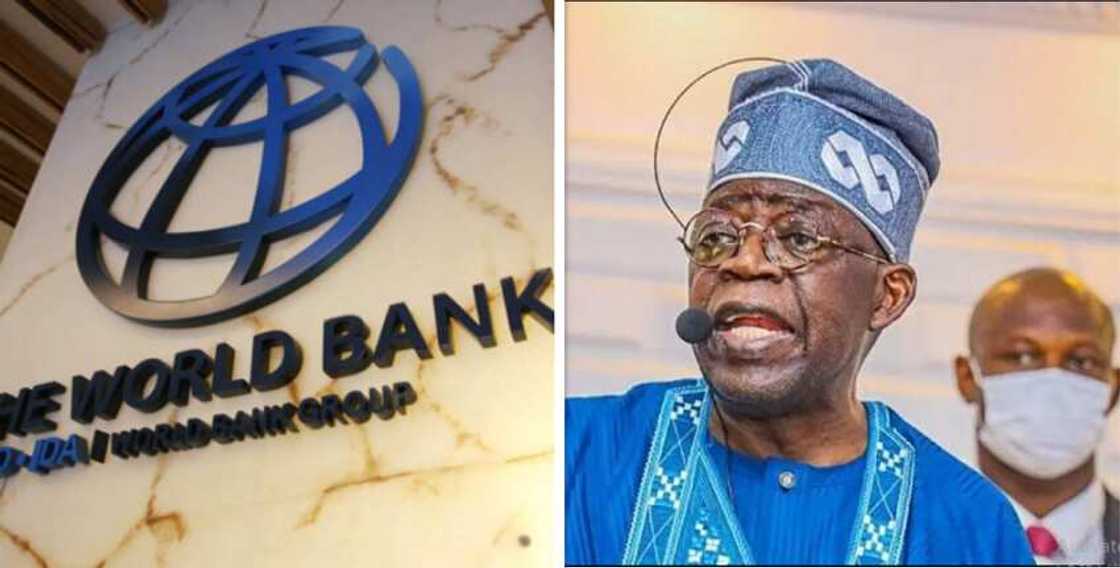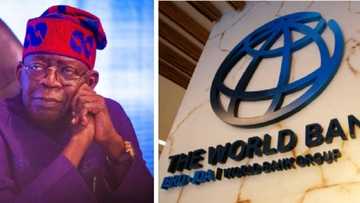Amid N82 Trillion Debt Stock, World Bank Warns Nigeria to Reduce Borrowing
- World Banks suggests shunning borrowing would help lessen the inflation burden on Nigeria
- The bank's earlier report indicates Nigeria’s debt rose to N82 trillion from N77 trillion before the naira exchange rates unification
- The global financial institution suggests maintaining some of the reforms currently being adopted to recover
The World Bank Group has cautioned Nigeria to cut back on its borrowing from the Central Bank of Nigeria if it wants to lessen the burden of inflation on the economy.
This was said on Thursday, 27th July 2023 at a business review session at the Lagos Business School by Alex Sienaert, the lead economist for Nigeria at the World Bank.

Source: UGC
This follows a report by Legit.ng that Nigeria’s debt rose to N82 trillion from N77 trillion before the Central Bank of Nigeria (CBN)'s exchange rate unification.

Read also
“N8,000 is significant”: World Bank says FG’s palliative will increase household earnings by 10 per cent
Why borrowing should reduce
Punch reported that Sienaert, in his keynote address, praised the administration for its recent economic changes but pointed out that the reforms need to be maintained for the economy to recover from the shocks currently being experienced and have significant growth in the near term.
PAY ATTENTION: Сheck out news that is picked exactly for YOU ➡️ find the “Recommended for you” block on the home page and enjoy!
He said:
The whole agenda of tackling inflation is obviously a huge one. Some ideas include reducing subsidised CBN lending to medium and large firms and the government borrowing from CBN.
All of them, he claimed, increase the money supply, and reducing them will aid in reducing inflation. Additionally, tariffs would take the place of forex limitations on imports.
He added that the economy was under strain because of the considerable increase in the price of petrol.
He continued by saying that other strategies would need to be developed to raise more money to increase spending to address the country's goals.
Buhari’s government spent 85.37% of its revenue on debt servicing in February, Tinubu inherited N77.8trn debt
In February 2023, the Nigerian government spent more than 85% of its earnings paying down debt, according to a previous article by Legit.ng.
The federal government maintained an income of N478.57 billion in February, according to the Central Bank of Nigeria's monthly economic report. The Federal Government spent N408.5 billion on debt servicing in the same month.
Source: Legit.ng



